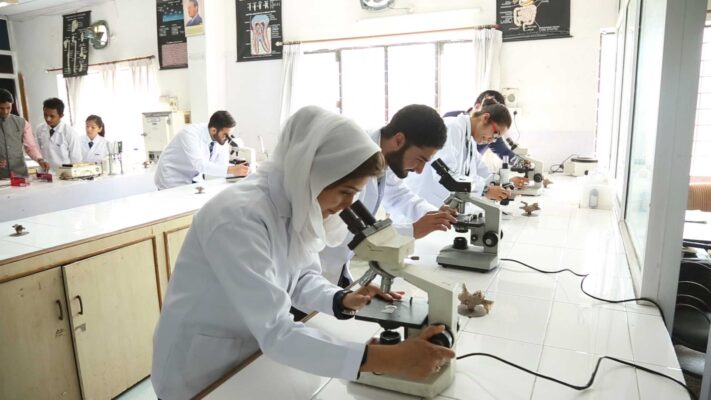Master of Science in Chemistry
December 29, 2023 2024-03-19 10:02Master of Science in Chemistry
Master of Science
in Chemistry
Course Duration : 2 Years
About this Course
Continue your academic journey with a Master's in Chemistry, where you'll explore the essential role of chemicals in the world of pharmaceuticals. Delve into the intricacies of drug synthesis, formulation, and quality control. From the molecular level to large-scale production, you'll be a master of chemical sciences, contributing to the development of safe and effective medicines.
Some of the Popular Career Paths Include

Life of a
Student in Chemistry
Continue your academic journey with a Master's in Chemistry, where you'll unravel the essential role of chemicals in pharmaceuticals. From drug synthesis to quality control, your days involve mastering the molecular intricacies of pharmaceutical science. It's a path that leads to becoming a proficient contributor to the development of safe and effective medicines.
Download Brochure
Our Proud Alumni

Animesh Banerjee

Jameson

Mritunjay Chaudhary

Lakshmi S. Nath

Pasan Pavan Kalyan

Rahul Jaiswal

Shivam Kumar

Yadhika Ghatani

Praveen Kumar Thakur

Shaswat Deep

Ritik Kumar
Photo Library
Crafting careers, fueling dreams. Where learning meets adventure, everyday.






























Frequently Asked Questions
The degree opens up a variety of careers in traditional and emerging fields. Research Scientist, Analytical chemist, QC/QA, Environmental Scientist, Pharmacologist, Food Technologist, Forensic Scientist, Material Scientist, Chemical Engineer, Laboratory Technician, Scientific Writer/Editor, Teacher and Geoscientist etc. are some of the career paths in this field. These are just a few examples of the career prospects depending on the specialization.
M.Sc. Chemistry can provide personal and professional benefits. Chemistry is the study of the composition of matter. Being a chemist personally, you will be aware of the adulteration that occurs in daily life, and you can get advanced knowledge and skills that can be useful in daily life. You can qualify for higher-level positions in government as well as private sector and can earn a higher salary and specialized knowledge and skills gained can open up more advanced career opportunities. Chemists have the opportunity to make meaningful contributions to society in the areas of healthcare, energy production, materials synthesis, and environmental sustainability. Skilled chemists are often in demand in high industries providing job security and stability.
- Candidates must have a Bachelor’s degree in chemistry as a major subject from a recognized university with a minimum of 50% in UG.
- Some colleges may require candidates to take entrance examinations specific to their M.Sc. Chemistry program. These exams may assess your knowledge in Chemistry and related subjects.
- Submission of relevant documents such as academic transcripts, mark sheets, and certificates of migration or transfer certificate from previous institution.
M.Sc. Chemistry covers a wide range of topics such as Inorganic Chemistry, Organic Chemistry, Physical Chemistry, Analytical Chemistry, Biochemistry, Environmental Chemistry, Material Chemistry, Research etc. Overall, M.Sc. Chemistry programs provide students with a comprehensive understanding of fundamental principles, theoretical concepts, experimental techniques, and applications across various branches of chemistry, preparing them for careers in research, academia, industry, or further study.



